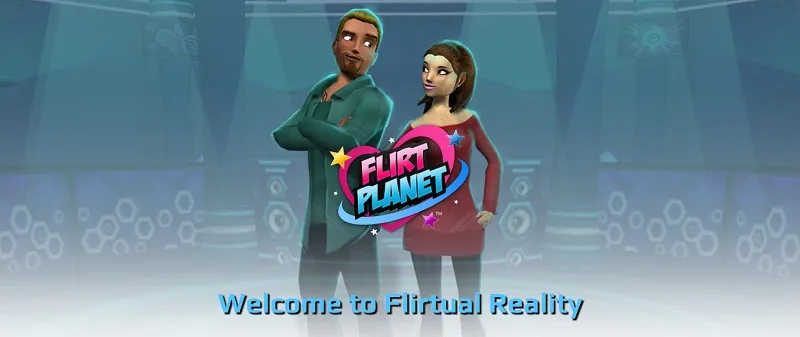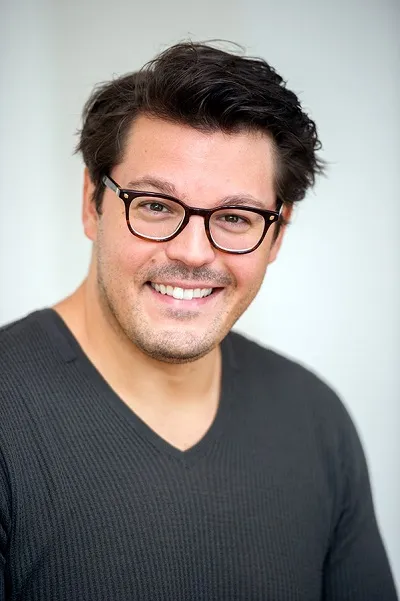Ex Barclays Bank VP and angel investor take dating and flirting to the virtual world with Flirtual Reality
Love the idea of virtual reality and gamification? But have you tried dating in virtual reality? And do you think it can lead to romance in real life? Well, believe it or not, that's exactly the idea behind Flirtual Reality, a gaming app by TrulySocial. The idea of Flirtual Reality came to Sebastian Coman about five years ago, when social games had just started becoming a rage. While there was a flood of social games in the market, Sebastian noticed they were monotonous and repetitive.
He knew that it was a matter of time before players who became bored of these mechanics would start looking for new game plays and these new casual gamers would become veterans. Sebastian also noticed another trend at that point in time: there were many first time and non-traditional gamers, including several women entering the space, yet nobody was paying much attention to them.
Another factor that cemented the idea was while there were a few dating simulations out there, they were text-based and tended to be unreliable. Sebastian also felt that nobody has truly attempted gamification of social interactions, which contributed to the idea of building a game around romantic encounters around virtual couples, with all the possible situations in a three-dimensional -world format.

Building the core team
Sebastian went with his idea to Salone Seghal, who went with him to his business school. At this point in time, Salone was the Vice President at Barclay's Bank. "Sebastian approached me at that time to see how I would feel about jumping into entrepreneurship and helping him build TrulySocial. Looking at the potential and the unique proposition, I was immediately on board," says Salone.

Soon, Sebastian built the basic MVP, with the help of some US-based developers. Salone knew her India connection would help the team leverage the cost-arbitrage of working with Indian developers and effectively managing their cash burn.
"We started the hunt for an outsourced team in India and, luckily, we found the right people. Even though outsourcing has its risks, the experience has been fantastic. The team in India is led by two highly-experienced games veterans who manage a motivated and talented set of artists and developers," says Salone. TrulySocial is UK-based and headquartered, but has development spread across London and India.
The team believes that while it may be considered as an outsider entering into the gaming industry and competing with large gaming giants, it has slowly found its feet. From a team of two, the company has expanded into a team of nine, and is looking to add more.
Bugs and fixes
However, entering a world that is new comes with its own set of challenges. Salone says that the game-building space was already wrought with a competitive edge, with several players populating the field. She adds that one of the biggest challenges the team faced was boredom.
"Switching costs for players is very low. That is exactly why it’s important to create a user experience that is immersive and engaging. Building a new game genre requires resources, courage and, most importantly, time," says Salone.
Many investors who did not understand the space well wrote to the team saying it was taking too much time, that their metrics didn’t look strong enough (the investors were comparing TrulySocial to their e-commerce portfolio cos), and that they knew developers who could create games in just three days.
"Little did they know that Will Wright took six years before the franchise that we now know as ‘The Sims’ by Electronic Arts was created or that the guys behind Angry Birds built 51 games which bombed before they came up with that particular title. Games are, by far, the toughest products to create in the tech world, as they are entertainment products," adds Salone.
However, with the rise of free-to-play mobile games and building MVPs, things seem to have improved. The team can now test user feedback and iterate the game to a large extent, which is in live beta. "Looking at the existing traction, we know we have created a product that has appeal and our early users love it," says Salone. The team has now begun its next round of fundraising activity.
How does it work?
The aim was to build a fun, innovative and immersive gaming experience, particularly around romantic encounters, because there were no games in the market which focused on such themes. Salone says that while in games you can kill monsters, build virtual doll-houses, play sports, and take on different avatars, no one had thought of gamifying relationships.
"Also, with the advent of dating apps, many struggle with saying the right things to a person of the opposite sex. Technology has made us more connected and a lot more distant at the same time. So, Flirtual Reality has even more relevance now," says Salone.
Flirtual Reality, Salone adds, essentially embraces free game play and dating interactions. The team has tried to blend together social interactions, human courtship, behavioural psychology and neuroscience with video game mechanics. In the company’s casual game, you enter the game as an avatar in a 3D world, where you can flirt and interact with a variety of AI characters. The game builds your ‘player personality’ via the decisions you make through a Myers – Briggs personality indicator, all created by neuroscientists and game developers with real dating science at their fingertips.
With over 90,000 lines of narrative, the product ensures that each player builds his/her own story and never sees the same conversation twice. The better you perform in these conversations, the more hugs you earn. Flirt well enough, and you’ll progress through the game, and add numbers to your ‘Little Black Book’ to go on virtual dates in Paris, Aspen and other exotic locations. "We will be building committed relationships soon as well," says Salone.
Growth and future plans

The team says that its live beta is already seeing strong, early traction with organic traffic from all over the world, including India. The users who most engage with them are females between the ages of 18 and 30. In fact, 70 per cent of users are women. Salone adds that they have very solid retention rates and the company has already been able to monetise its product. Its users are playing the games on average of 25 to 30 minutes.
"With the Flirtual Reality genre of games, we are effectively carving our own niche at the intersection of casual gaming and digital dating, both of which are immensely large and profitable markets," says Salone.
In terms of future opportunities, the team plans to come up with low-cost mainstream, virtual-reality devices for mobiles, which will provide highly immersive experiences even for free-to-play casual gamers on mobiles.
The team believes that the game, with the existing 3D interface, will lend itself well to a VR platform as well, making it believe it is ready even for world domination. It also sees a great potential in India.
"With its growing adaption to technology, rising Smartphone and tablet penetration, and the rise of gaming and dating apps, growth can be explosive," adds Salone.
The team is focused on building user retention and monetisation. It already has a virtual economy in place, and so it monetises through in-app purchases, and also has plans to build strong monetisation hooks. It plans to convert between two and three per cent of the players into spenders.
"The average purchase made by our players is anywhere between USD eight and 12, and there are some users who have spent up to USD 100 in the game. This is very good for a virtual economy that is still raw and not yet optimised, so we know there is massive potential to be unlocked," adds Salone
The team has closed a seed round last year and has also further recapitalised through its founding team and investors. Later this year, it will also look into raising a larger institutional round. "We know we are well-placed for raising global and domestic capital as we have an innovative product, have achieved product- market fit and can maintain an effective cost base. Once the capital is raised, we will be ready to scale our model," says Salone.







